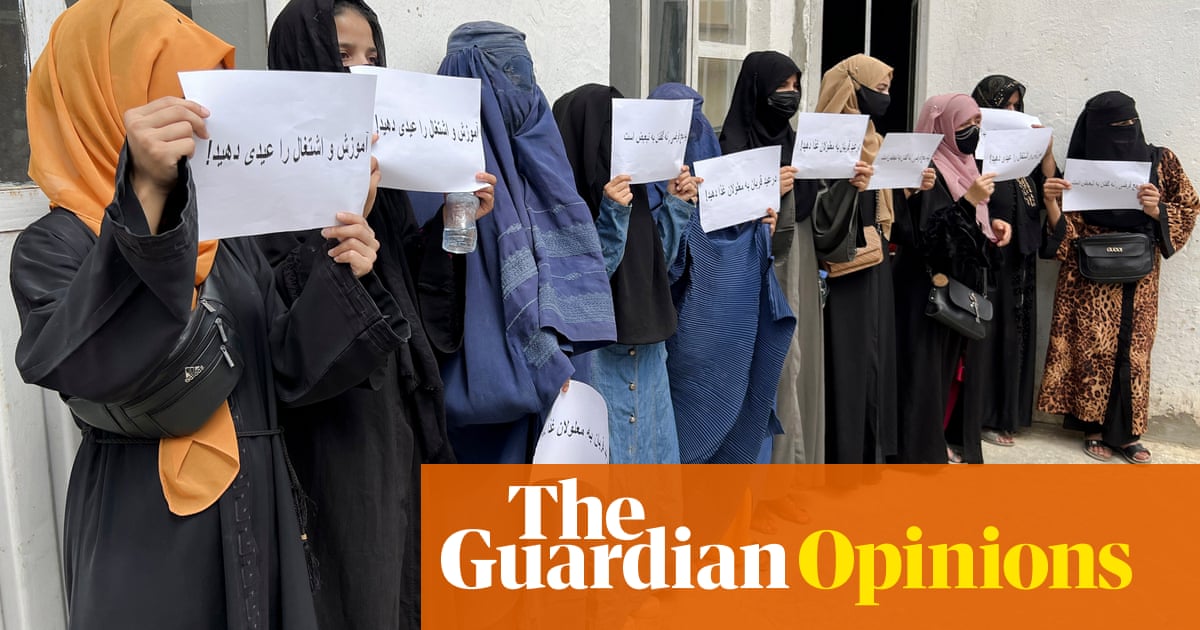
Outside a college from which their mothers were banned, the women waited for friends finishing exams they fear will be some of the last they can take. “The Americans are leaving,” said Basireh Heydari, a Herat University student. “We have terrible days ahead with the Taliban. I’m worried they won’t let me leave the house, let alone what I’m doing now.”
The Biden administration’s decision to withdraw all US troops from Afghanistan by 11 September will bring an end to the US’s longest war. With Nato allies such as Germany already announcing on Wednesday that they will follow Washington’s lead and exit the country, Afghans fear an intensification of fighting between the national government and the Taliban, who were ousted by the US-led intervention two decades ago.
Violence against civilians, especially women and children, has surged over the past year, according to UN statistics released on Wednesday, and Taliban control of the country is greater than at any point in the past two decades. The benefits of an ongoing foreign military presence in the country are unclear.
But a return to hardline Islamist rule could mean the rollback of one of the intervention’s least disputed achievements – the lifting of a Taliban prohibition of female education.
On Wednesday, Heydari and her friends were trying to absorb the news as they sat in a rickshaw by the university gates. “I have only one wish, and that’s to finish my studies and of course work, but with the Taliban coming, I don’t think I’ll reach it,” she said.
There is no guarantee the Islamist group will take power, and they have signalled – perhaps opportunistically – that their future rule would be more flexible on the question of female schooling. If not a total change of heart on the part of the fundamentalists, Heydari hoped at least for a compromise. “If they have problems with co-education, I’m ready to study in girl-only classes,” she said.
Beside her, Salma Ehrari, an economics student, was more sceptical. “I want the world to know that the Taliban are fooling them, they are not changed,” she said. “They are using technology and are on Twitter, but they have the same thoughts as they had 20 years ago. I’ll lose my education and of course Americans are responsible for that, not the Taliban – this is just the Taliban’s nature.”
Some in the province, where the Taliban controls some districts, said deteriorating security was already leading to a curtailment of their liberties. “My outlet restricted my colleagues’ movements because of security concerns, and my father recently asked me to stop working for a while,” said Atifa Alizadeh, a reporter and part of a generation of Afghan women who have gone to school and found work since the downfall of the Taliban in 2001.
At least eight journalists have been killed in the country over the past six months, as part of a wave of attacks against media workers, activists and other civil society figures.
Basireh Safa Theri, a social activist, started a girls’ school in the aftermath of the US-led invasion, and said she was closely monitoring halting negotiations between the national government and the Taliban about what will come after international forces depart.
“They are negotiating each day but unfortunately no word on girls’ education, they only talk about power,” she said.
In the meantime, the girls at her school have started to study harder. “They feel that they are in the very last days of their schooling,” she said. “Many students and families are coming and telling me they will only be able to go to school for a few more weeks or months, and want to learn as much as they can.
“Students are coming to my office and asking, ‘Are the Taliban coming? Will we be able to keep coming to school or not? We want to use the very last seconds’.”












